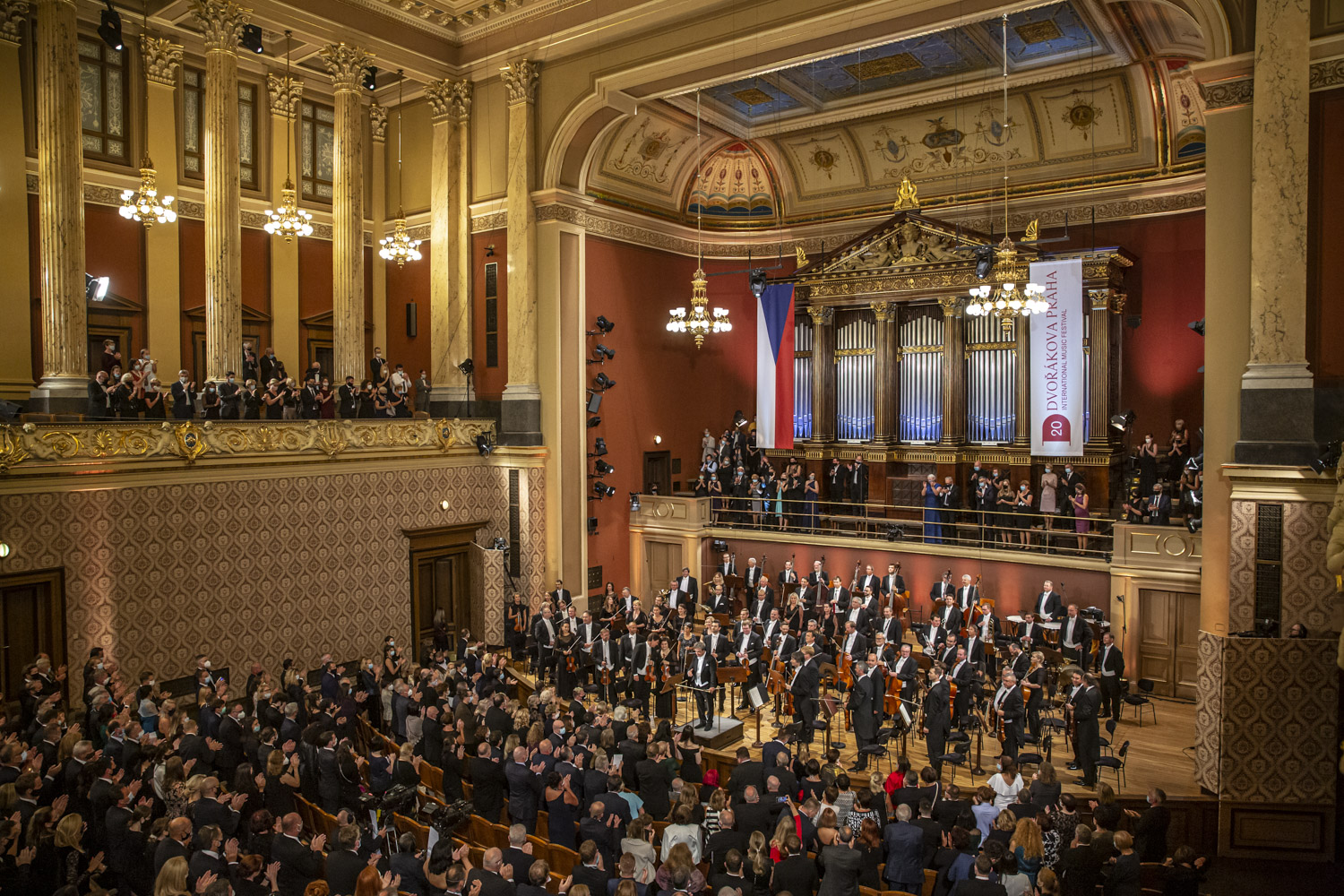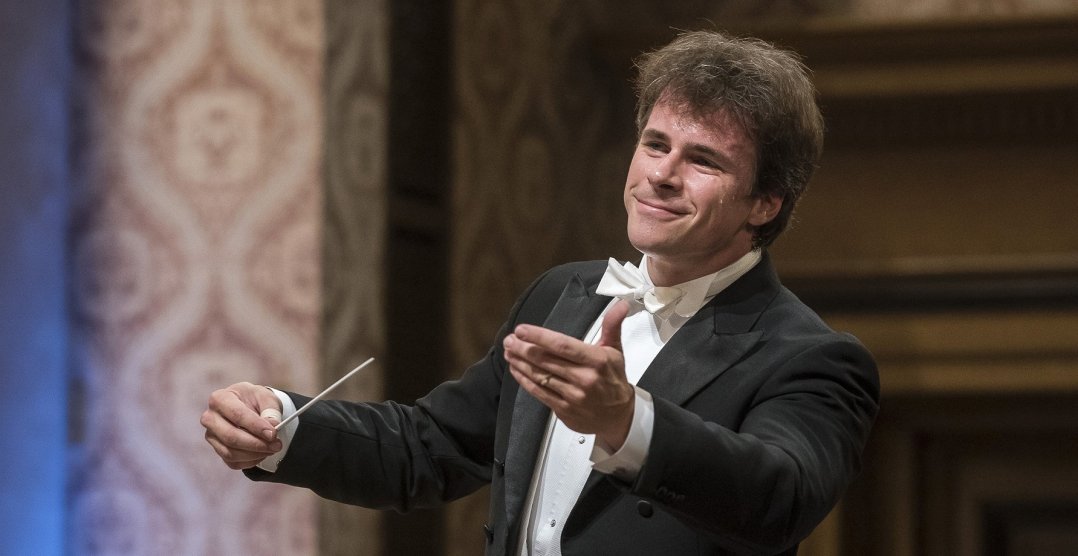
Ludwig van Beethoven: Violin Concerto in D major, Op. 61
Josef Suk: Asrael, Symphony in C minor, Op. 27
Josef Suk began composing his funeral symphony Asrael while grieving over the death of his father-in-law Antonín Dvořák, then as he was working on the piece, Suk’s wife, Dvořák’s daughter Otilka, died as well. To this great work full of immense human suffering he gave the name of the Islamic and Hebrew angel of death. Gustav Mahler is, as it were, the unspoken godfather of Asrael. Suk’s symphonic masterpiece is both intoxicating and philosophical; it does not drive listeners to despair, but instead exhorts them to contemplate the inexorable nature of fate and to meditate on the eternal. Asrael is a symphony in which Suk recasts great personal sorrow into a masterpiece, a true milestone of Czech symphonic music, and a work worthy of standing alongside the world’s greatest compositions of the early twentieth century. The conductor Jakub Hrůša and the Czech Philharmonic will perform Asrael using the critical edition published in 2018 by Bärenreiter, which is based on not only Suk’s manuscript, but also corrections made later at the initiative of Václav Talich. On the first part of the programme will be the Violin Concerto in D Major by Ludwig van Beethoven with the outstanding violinist Jan Mráček playing the solo part.
Gramophone’s 2024 ‘Orchestra of the Year’, the Czech Philharmonic gave its first concert – an all-Dvořák programme conducted by the composer himself – in the famed Rudolfinum Hall on 4 January 1896. The Orchestra is acknowledged for its definitive interpretations of Czech composers and recognised for its special relationship with the music of Brahms, Tchaikovsky, and Mahler, who conducted the world première of his Symphony No. 7 with the Orchestra in 1908. It is currently recording the complete cycle of Mahler symphonies with Chief Conductor and Music Director Semyon Bychkov for Pentatone.
The Czech Philharmonic’s extraordinary and proud history reflects both its location at the very heart of Europe and the Czech Republic’s turbulent political history, for which Smetana’s Má vlast has become a potent symbol. 2024 was the Year of Czech Music, a major celebration launched on the bicentenary of Smetana’s birth and held across the Czech Republic every ten years. The Czech Philharmonic marked Smetana’s bicentenary with a series of concerts at the Smetana Litomyšl Festival, including a rare concert performance of his opera Libuše, conducted by Principal Guest Conductor Jakub Hrůša.
The contribution of the Czech Philharmonic and Semyon Bychkov to the Year of Czech Music was the Dvořák Festival, a combined performance of three overtures, instrumental concerts, and the last three symphonies of Antonín Dvořák, both in Prague and on tour in South Korea, Japan, Spain, Austria, Germany, Belgium, and France. The highlight of the Year of Czech Music performed by Semyon Bychkov and the Czech Philharmonic was a series of three concerts in New York's Carnegie Hall.
Alongside the Czech Philharmonic’s Youth Orchestra, Orchestral Academy, and Jiří Bělohlávek Prize for young musicians, a comprehensive education strategy engages with more than 400 schools, bringing students of all ages to the Rudolfinum – some travelling as long as four hours – to hear concerts and participate in workshops. An inspirational music and song programme led by singer Ida Kelarová for the extensive Romani communities within the Czech Republic and Slovakia has helped many socially excluded families to find a voice.
An early champion of the music of Martinů and Janáček, the works of Czech composers – both established and new – remain the lifeblood of the Orchestra. Instigated by Semyon Bychkov at the start of his tenure, nine Czech composers and five international composers – Detlev Glanert, Julian Anderson, Thomas Larcher, Bryce Dessner, and Thierry Escaich – were commissioned to write for the Orchestra.
source: Česká filharmonie
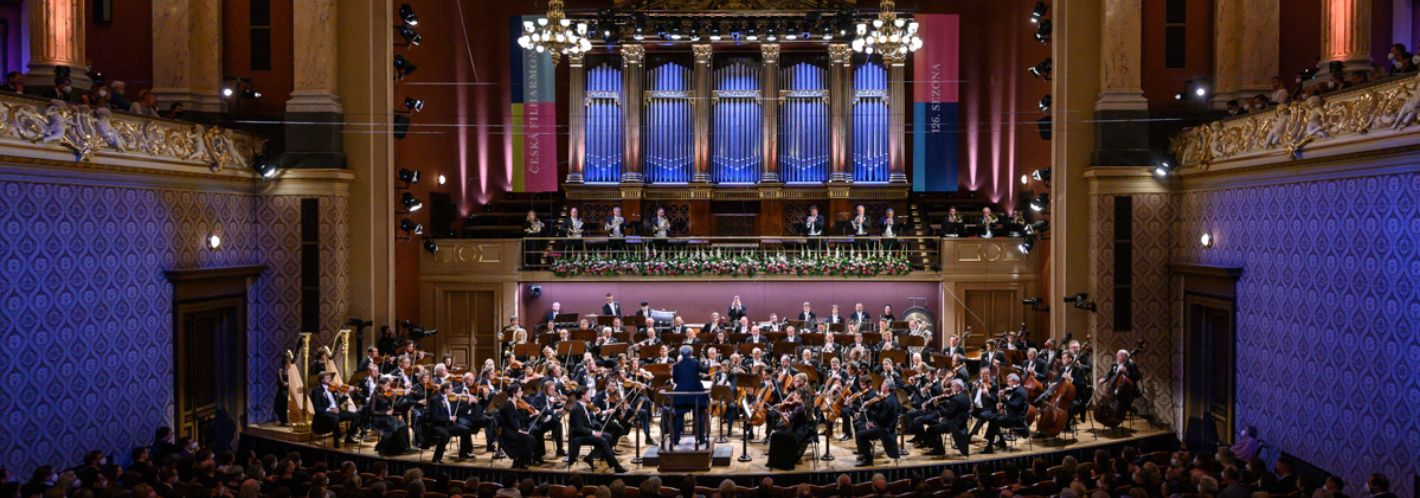
Jakub Hrůša is Chief Conductor of the Bamberg Symphony and Principal Guest Conductor of both the Czech Philharmonic and the Orchestra dell’Accademia Nazionale di Santa Cecilia. From autumn 2025, he will take up the post of Music Director at the Royal Opera at Covent Garden in London.
He frequently appears as a guest conductor with the world’s greatest orchestras, including the Berlin, Vienna, Munich and New York Philharmonics, the Bavarian Radio, NHK, Chicago and Boston Symphonies, the Leipzig Gewandhaus, Lucerne Festival, Royal Concertgebouw, Mahler Chamber and the Cleveland Orchestra, the Orchestre Philharmonique de Radio France, Dresden Staatskapelle, Orchestre de Paris, and Tonhalle Orchester Zürich.
He has led opera productions for the Vienna State Opera, the Royal Opera House, Opéra National de Paris, Zurich Opera, and the Glyndebourne Festival. In 2022, he made his debut at the Salzburg Festival with a new production of Káťa Kabanová.
For his recordings with the Bamberg Symphony, he received an ICMA for Hans Rott’s 1st Symphony in 2023, previously an ICMA for Bruckner’s 4th Symphony, as well as the Jahrespreis der Deutschen Schallplattenkritik for Mahler's 4th Symphony, as well as a BBC Music Magazine Award for Dvořák and Martinů Piano Concertos with Ivo Kahánek. In addition, he has received Gramophone and BBC Music Magazine Award nominations for Martinů Violin Concertos with Frank Peter Zimmermann.
Hrůša studied at Prague’s Academy of Performing Arts, where his teachers included Jiří Bělohlávek. He is President of the International Martinů Circle and The Dvořák Society. He was the inaugural recipient of the Sir Charles Mackerras Prize, and in 2020 was awarded the Antonín Dvořák Prize by the Czech Republic’s Academy of Classical Music, and – with the Bamberg Symphony – the Bavarian State Prize for Music. In 2023, Jakub Hrůša was awarded Honorary Membership to the Royal Academy of Music in London.
source: Bamberger Symphoniker
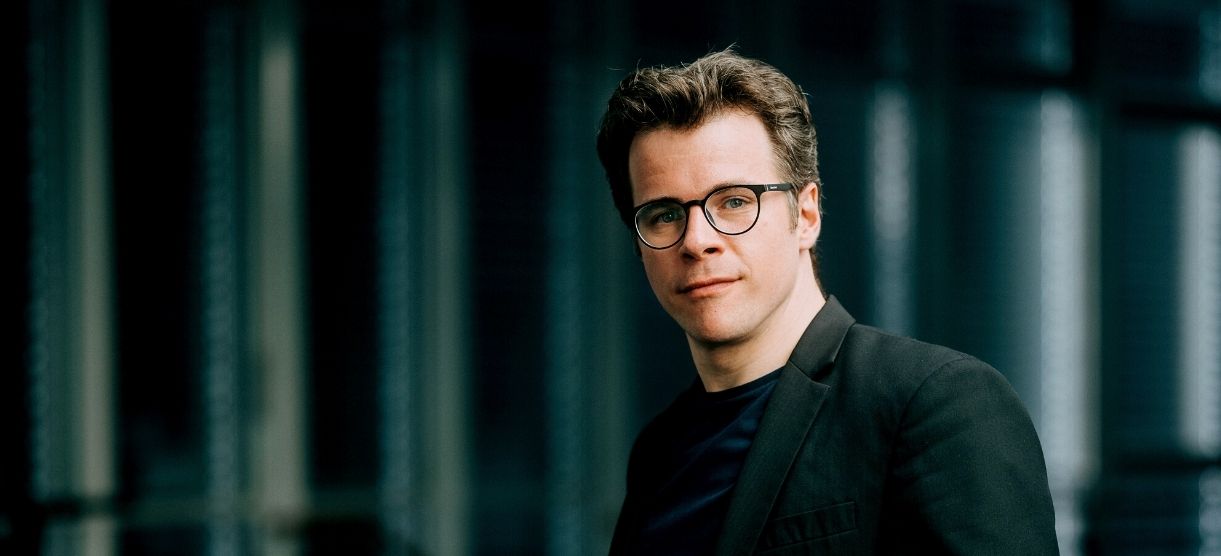
The violinist Jan Mráček has been one of the most prominent performers of his generation. He began playing violin at the age of five, and he studied at the School of Music of the City of Prague and the Prague Conservatoire. At the age of 13 he first appeared on the stage of the Rudolfinum alongside Josef Suk. His many competition successes include second prize at the 2010 Prague Spring Competition, when at the age of 19 he became the youngest laureate in its history. He appears regularly with Václav Hudeček, and since 2012 he has been an assistant at the Václav Hudeček Academy. In 2011 he became the youngest soloist in the history of the Prague Radio Symphony Orchestra, and three years later he won the Fritz Kreisler International Violin Competition in Vienna. Since 2015 he has been serving as concertmaster of the Czech Philharmonic. He appears as a soloist around the world together with such great conductors as Maxim Vengerov, James Judd, Jac van Steen, and Vladimir Fedoseyev.
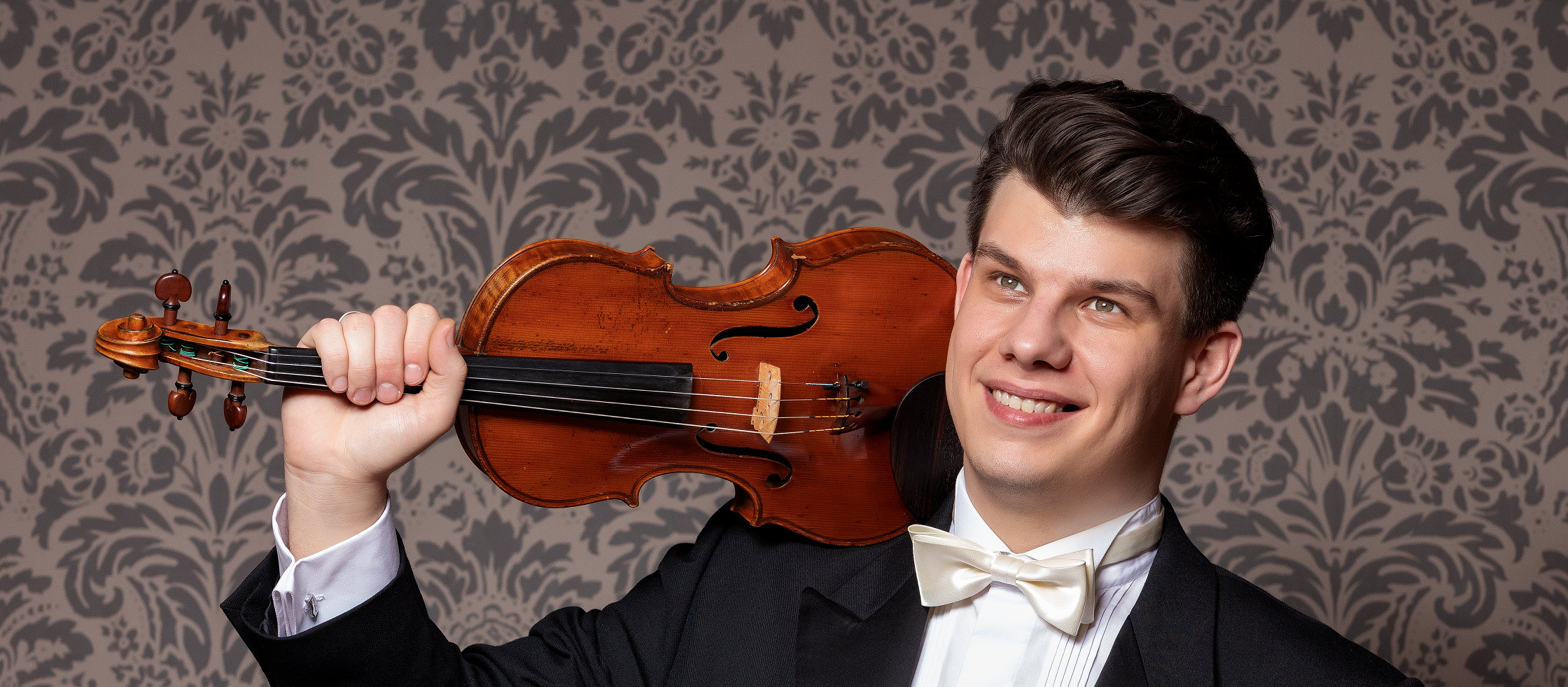
The Rudolfinum is one of the most important Neo-Renaissance edifices in the Czech Republic. In its conception as a multi-purpose cultural centre it was quite unique in Europe at the time of its construction. Based on a joint design by two outstanding Czech architects, Josef Zítek and Josef Schultz, a magnificent building was erected serving for concerts, as a gallery, and as a museum. The grand opening on 7 February 1885 was attended by Crown Prince Rudolph of Austria, in whose honour the structure was named. In 1896 the very first concert of the Czech Philharmonic Orchestra took place in the Rudolfinum's main concert hall, under the baton of the composer Antonín Dvořák whose name was later bestowed on the hall.
